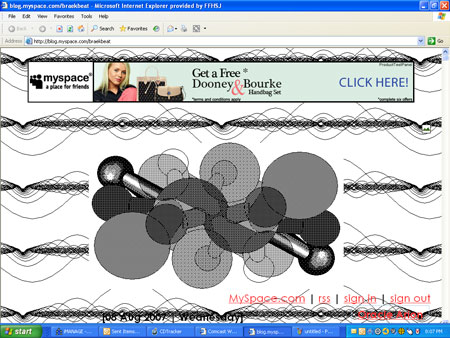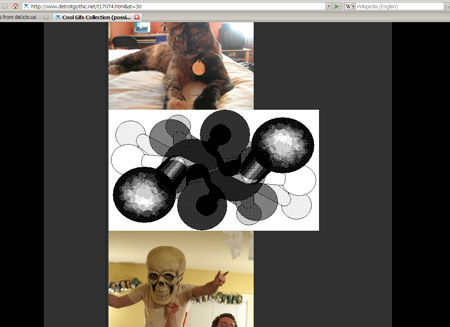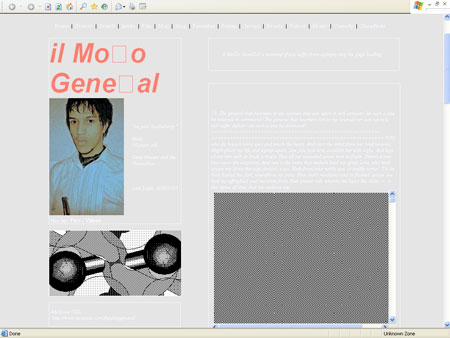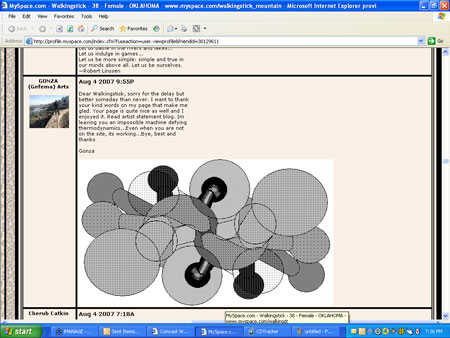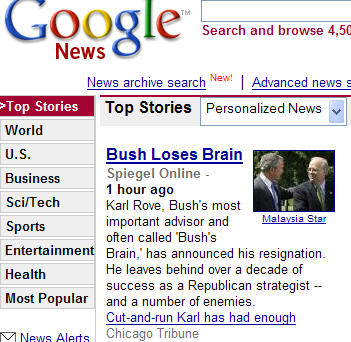Rhizome.org has a couple of my images* up on their front page today. Hey, it's the Internet and I don't insist on credit for everything but this is, well, my blog, where I get to mention this sort of thing.

This photo of LoVid performing at Southfirst originally appeared here.

This composite of what I called the "exercise molecules" was used as an illustration of a furtherfield.org article about my blogging activities--the article was also absent from the Rhizome reblogging of the latest furtherfield articles. I mean, they linked to a blurb about the article and that's great and I ain't complaining, really. And it's true the exercise molecules aren't mine (they're found) but it was a bitch putting them together like that in MSPaint where they all retained their characteristic motion in cluster form. (Update: at some point after the above screenshot was made, a mention of the furtherfield coverage of BLOG, my blog-as-performance, was added to the Rhizome post.)
*Update, 2011: The Rhizome links have been changed to http://rhizome.org/editorial/2007/aug/6/new-reviewsinterviews-at-furtherfieldorg-july-31st/ and http://rhizome.org/editorial/2007/aug/15/live-stage-cross-current-resonance-transducer-onli/. Furtherfield's coverage of BLOG has once again gone missing from the former post.

